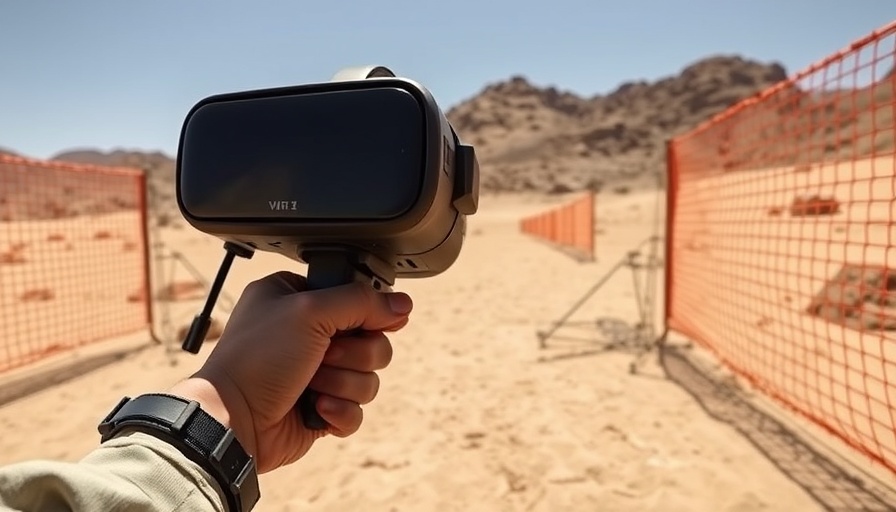
The Transformation of Law Enforcement Training through Technology
In an age where technology permeates our daily lives, it is no surprise that law enforcement agencies are embracing virtual reality (VR) training solutions. The future of policing and officer training is steadily shifting towards immersive and interactive environments, allowing for enhanced skill development and preparedness in real-world scenarios. As police departments strive to keep up with evolving public safety expectations, adopting VR training programs presents a promising frontier.
Enhancing Realism in Officer Training
The latest advancements in VR training systems, such as the ACE Virtual Reality Shooting System, offer instructors the ability to view, record, and analyze what trainees experience in real-time. The immersive scenarios not only replicate the high-stress situations officers face but also allow for a wide range of training—from tactical movements to de-escalation techniques. By utilizing such systems, law enforcement can develop more competent officers prepared to navigate complex situations thoughtfully and effectively.
Cost-Effectiveness and Flexibility in Training
The integration of VR technology drastically reduces training costs while enhancing flexibility. Traditional training methods often require significant resources, including live range utilization and extensive instructor time. In contrast, VR systems enable officers to engage in constructive practice without the constraints of physical setups. Real-time feedback and the ability for instructors to create tailored scenarios empower agencies to improve their training regimens fundamentally.
Community Trust and Accountability
In a climate where public trust in law enforcement is critical, incorporating modern training methods can reassure communities of officers' preparedness to handle various situations. VR training not only builds officer competencies but can also enhance community and police accountability through transparent training methodologies. As departments prioritize officer wellness and accountability, investing in state-of-the-art training tools becomes an essential aspect of reform efforts.
Challenges of Implementation
While the benefits of VR training are clear, agencies must also address potential challenges. Budget constraints and the need for adequate technological infrastructure to support VR systems can pose barriers to implementation. Additionally, some departments may face resistance to change within their training culture. It is crucial for agencies to foster an environment that embraces innovation and demonstrates the long-term benefits of sophisticated training options.
Future Trends in Law Enforcement Training
As we look ahead, the trend of integrating advanced technologies—such as artificial intelligence and data analytics—will profoundly affect police training. The identification and application of real-world data can further refine the content and delivery of VR training programs, ensuring that officers are equipped with relevant skills that address current crime trends and community expectations. By prioritizing such innovative approaches, law enforcement can advance their tactical operations and bolster overall public safety.
In conclusion, the embrace of VR technology and similar advancements in law enforcement training not only promotes officer skill development but also plays a pivotal role in strengthening community trust. Policymakers and department leaders must recognize the importance of investing in these tools to facilitate effective change and enhance the capabilities of their officers. By doing so, they set the foundation for a modernized police force that meets the evolving demands of public safety.
 Add Row
Add Row  Add
Add 

 Add Element
Add Element 


Write A Comment